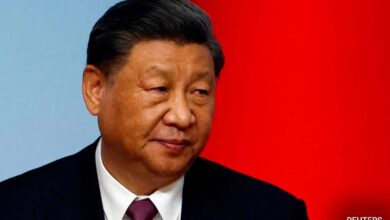Justin Trudeau to step down as head of Canada’s Liberal Party: What happens now | Explained News
Amidst widespread unpopularity, Canadian Prime Minister Justin Trudeau will likely step down as head of the Liberal Party on Monday (January 6). This precedes a party-wide caucus slated to be held on Wednesday, according to a report in Canadian newspaper The Globe and The Mail.
While it is not currently known if his resignation as party chief will be accompanied by his resignation as the country’s premier, this move seems to be timed to ensure the party presents some semblance of stability ahead of the impending parliamentary election.
Current state of Canadian politics
Trudeau’s Liberal government already stood on shaky ground, having won the last election in 2021 with the support of the Jagmeet Singh-led left-wing New Democratic Party (NDP) in an agreement meant to last till September 2025. Essentially, the Liberals had amassed seats just shy of the parliamentary majority to form a government and the NDP agreed to support it through confidence motions and budget votes.
In turn, the Liberal government promised to bat for key NDP policy issues, such as free dental care, pharma-care legislation, and efforts to protect childcare and workers.
However, the NDP withdrew its support from the government last September, with party leader Jagmeet Singh criticising Trudeau for failing to effectively challenge the opposition Conservative Party. Throwing his hat into the ring as a potential prime minister candidate, Singh then defended this decision as preparation to challenge potential “Conservative cuts” in healthcare and other kinds of public -funded services. The Conservatives, led by Pierre Poilievre, a right-wing populist leader, are currently projected to win the upcoming parliamentary election.
On December 20, Singh announced he would introduce a no-confidence vote to oust the Liberals from power, making an early election imminent.
Earlier in October too, nearly two dozen MPs signed a letter calling for Trudeau’s resignation. The Liberals witnessed historically low approval ratings, with an Ipsos survey rating it at 33%, behind the Conservatives at 45%. Trudeau’s own approval rating hit an all-time low of 26% in October 2024 from 54% in February 2021.
In recent years, the Liberal Party has presided over rising political divisiveness and inflationary pressures. A key point of contention has been the soaring housing crisis, characterised by spiralling house prices and increasing homelessness.
On December 16, Trudeau’s trusted deputy and finance minister Chrystia Freeland resigned from the post hours before her scheduled fall economic update to the parliament. In her resignation letter, Freeland said the PM “no longer wanted” her to serve as the finance minister and had offered her a different cabinet post. Her resignation marks the latest of a massive exodus in the current cabinet, which has seen eight ministers exit in recent months.
There has also been widespread concern about Trudeau’s ability to handle the fallout of impending economic protectionism from the US, once Trump ascends to presidency later this month.
What happens next for Trudeau?
If Trudeau resigns as party chief, an interim leader will be elected to serve the remainder of the term until the party elects a new leader. The Globe in December reported that Freeland was being propped up for leadership by some members of the Liberal Party.
If the no-confidence vote does proceed this month, the Liberals are likely to lose without the NDP’s support. The government would need the support of a majority of the 338 members in the House of Commons to survive a confidence vote, which the Liberal Party is currently short of. In the current scenario, early elections seem imminent.
A third option would be to ‘prorogue’ the parliament, effectively a suspension of parliament without its dissolution. Trudeau may choose to exercise this option in the interest of continuing current government policy, and bypass the no-confidence vote.
(This is an updated version of an explainer published in December 2024)
Discover the Benefits of Our Subscription!
Stay informed with access to our award-winning journalism.
Avoid misinformation with trusted, accurate reporting.
Make smarter decisions with insights that matter.
Choose your subscription package







